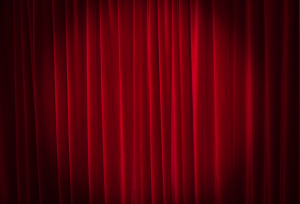Review
THE CABIN IN THE WOODS: Watch it At Home – Clever and Culty
Seeing THE CABIN IN THE WOODS is sort of like being in Fight Club: the first rule is not to talk about it. Or, at least, not to reveal any of the wild, ingenious twists put into place by its producer/co-writer Joss Whedon (immortal creator of Buffy The Vampire Slayer, Angel, Firefly and Dollhouse, and shortly to be showcased as writer/director of The Avengers) and his longtime colleague, director/co-writer Drew Goddard. Which makes it difficult to discuss, or review.
It seems safe to describe what’s already been spoiled in the trailer. The cabin of the title is a rural house being inhabited for the weekend by a classic set of horror movie archetypes: a jock (Thor‘s Chris Hensworth, although Cabin, having sat on studio shelves for more than a year, predated Hemsworth picking up the magic hammer); his girlfriend (Anna Hutchison), who if not a “slut” is certainly uninhibited; a brainy hero (Jesse Williams); a wise-cracking stoner (Fran Kranz); and a (relative) virgin (Kristen Connolly). It goes without saying that terrible things will happen to them, but apart from the supernatural threat, their actions are also being observed and manipulated by official-looking scientists, headed by Bradley Whitford, Richard Jenkins and Amy Acker.
 Beyond that, even a synopsis becomes dangerous. Suffice it to say that with its themes of surveillance and tales enacted by initially unsuspecting performers, there’s a notable overlap between Cabin and Whedon’s short-lived Dollhouse, which was relatively current at the time Whedon was making this film. (More coincidentally, some of its aspects are surprisingly similar to The Hunger Games.)
Beyond that, even a synopsis becomes dangerous. Suffice it to say that with its themes of surveillance and tales enacted by initially unsuspecting performers, there’s a notable overlap between Cabin and Whedon’s short-lived Dollhouse, which was relatively current at the time Whedon was making this film. (More coincidentally, some of its aspects are surprisingly similar to The Hunger Games.)Also like the initial episodes of Dollhouse, Cabin is extremely conceptual in a way that limits its ability to work on an emotional or visceral level. For an entertainment conceived and structured with enormous sophistication, the scares in Cabin are surprisingly low-grade, nearly all on the level of something jumping into frame as the soundtrack bellows. There’s no real possibility for psychological or character-based horror. Dollhouse eventually evolved beyond its starting point and became much more satisfying (for its admittedly very limited audience), but Cabin is a self-contained, rather intellectualized joke about horror cliches–to an extent surprising for a Whedon project, it feels like the work of a jaded artist who’s merely shuffling his deck of genre conventions to pass the time.
 That’s not to say that the movie doesn’t have its pleasures. Whedon and Goddard (making his directing debut with verve if no particular visual style) write, as always, marvelously zinging semi-satiric dialogue, especially sharp in the mouths of Kranz and Acker (both Whedon vets) and Whitford and Jenkins. The third act, which cannot be described here, has one really extraordinary go-for-broke sequence to be remembered. The story is well-paced, and constantly manages to have more twists up its sleeve.
That’s not to say that the movie doesn’t have its pleasures. Whedon and Goddard (making his directing debut with verve if no particular visual style) write, as always, marvelously zinging semi-satiric dialogue, especially sharp in the mouths of Kranz and Acker (both Whedon vets) and Whitford and Jenkins. The third act, which cannot be described here, has one really extraordinary go-for-broke sequence to be remembered. The story is well-paced, and constantly manages to have more twists up its sleeve.Whedon, though, inevitably competes with himself, and Cabin is very minor by his standards. His particular genius has been to take facile, familiar horror and science-fiction tropes and make them shockingly vital and emotional, but the very trick at the center of this script requires that its Cabin be constructed out of cardboard–and that’s not nearly sturdy enough for Whedon’s best work.



